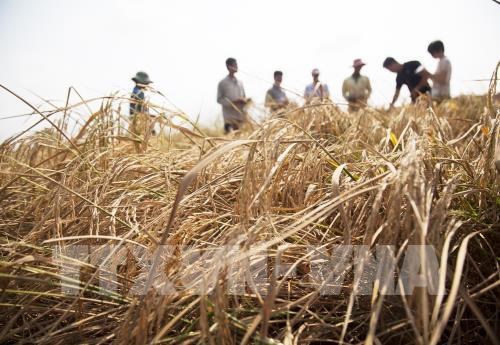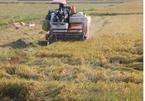 |
|
Rice dries up due to drought
|
The sum will be allocated to a project named “Strengthening the resilience of smallholder agriculture to climate change-induced water insecurity in the Central Highlands and south-central coast regions of Vietnam” (SACCR).
The project will be carried out by the MARD with the support of the United Nations Development Programme (UNDP) in six years, benefiting over 222,400 residents, or 10 percent of the population in the provinces of Dak Lak, Dak Nong, Binh Thuan and Ninh Thuan, especially women and ethnic people.
It is designed to modernise irrigational systems, improve water security and livelihoods, provide knowledge in climate risk and climate resilience agriculture, and strengthen access to agro-climate information, credit and markets.
In addition, the project is expected to assist more than 335,000 indirect beneficiaries through training courses and technical assistance, access to climate risk information and best practices of smart agriculture aligned with climate change.
The non-refundable aid aims to supplement and foster an investment of the Asian Development Bank (ADB) in modern irrigational systems in drought-hit provinces in Vietnam, ensuring benefits of the poor and most vulnerable people, said Caitlin Wiesen, UNDP Resident Representative in Vietnam.
It also adds up to efforts of the Vietnamese Government to bolster resilience of vulnerable coastal communities to climate change-related impacts, with an ongoing project funded by the GCF since 2017./.VNA

Scientists warn of climate change's effect on water resources in Vietnam
The rapid population increase as well as agricultural development and aquaculture in the last decades have significantly reduced the natural value of Mekong Delta.

Coping with climate change in Vietnam's wetlands
As a member state of the Ramsar Convention, Vietnam has carried out many activities to encourage and enhance the conservation of wetlands to cope with climate change.
 The Green Climate Fund (GCF) has approved a non-refundable aid worth 30.2 million USD to help Vietnam enhance climate resilience, according to the Ministry of Agriculture and Rural Development (MARD).
The Green Climate Fund (GCF) has approved a non-refundable aid worth 30.2 million USD to help Vietnam enhance climate resilience, according to the Ministry of Agriculture and Rural Development (MARD).